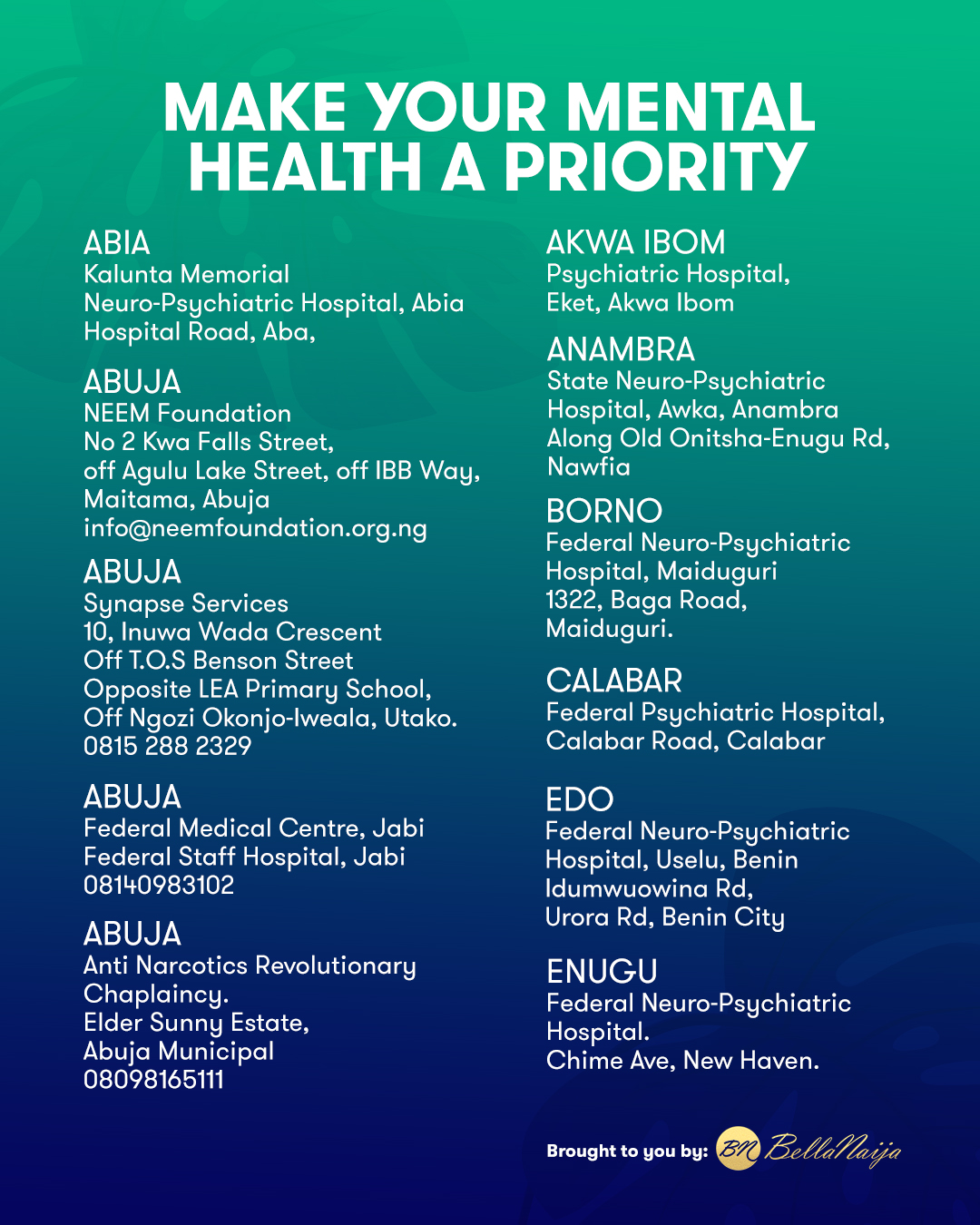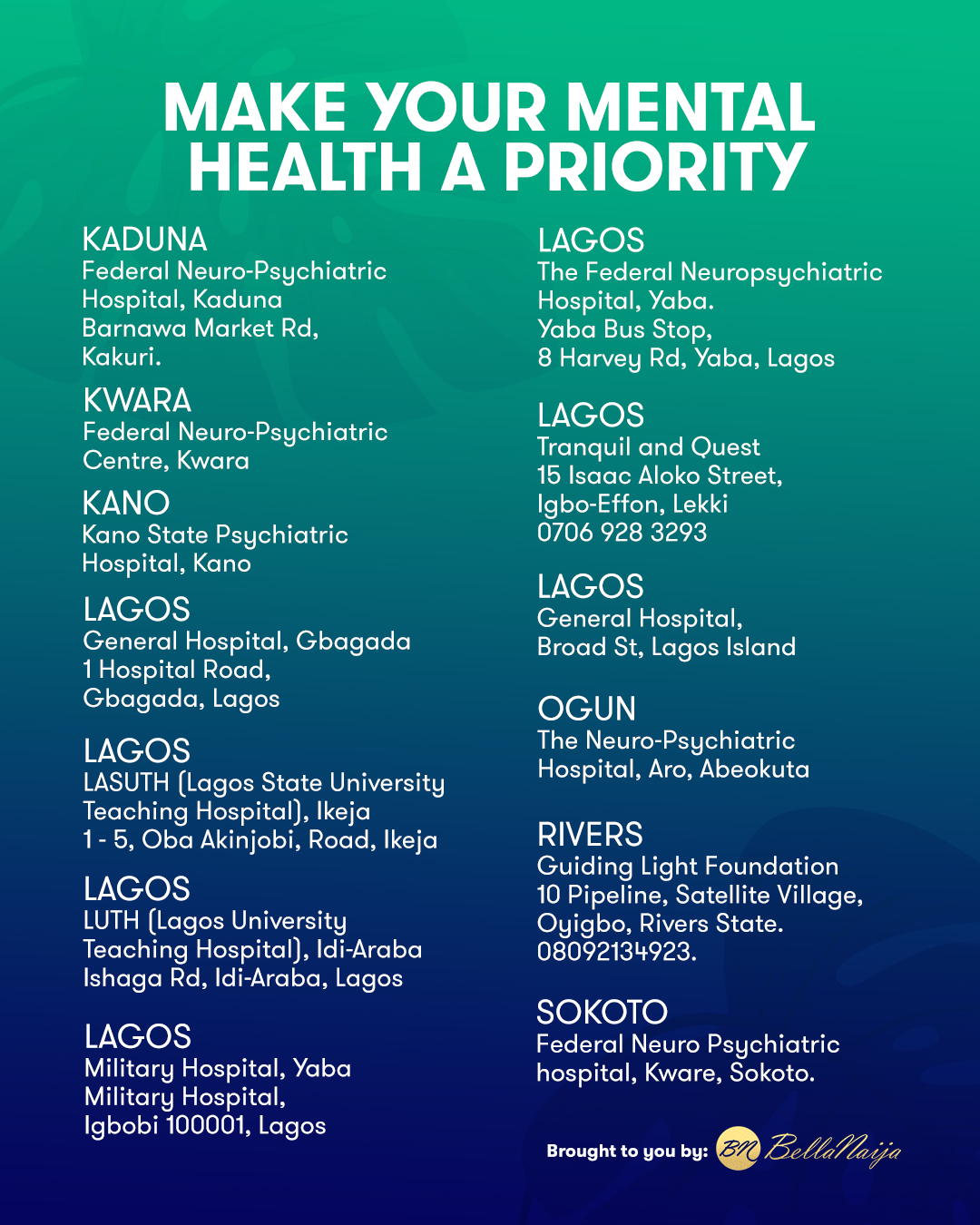Features
Jean Clare Oge: The Invisible Illness
The society has also been conditioned to largely treat Mental Health problems as spiritual and suicide as unspeakable.
 I am certain that at various points in our lives, we all have felt that sudden urge to sneeze. When it comes, there is very little or nothing that you can do to prevent it. The impulse can get so strong that you have no other choice but to follow your body’s command. While you are at it, you don’t think about your family or the reasons not to do it. You are convinced that anything short of sneezing wouldn’t relieve you of that sensation you are feeling. So you just do it. You sneeze.
I am certain that at various points in our lives, we all have felt that sudden urge to sneeze. When it comes, there is very little or nothing that you can do to prevent it. The impulse can get so strong that you have no other choice but to follow your body’s command. While you are at it, you don’t think about your family or the reasons not to do it. You are convinced that anything short of sneezing wouldn’t relieve you of that sensation you are feeling. So you just do it. You sneeze.
Suicidal depression can be likened to having to sneeze. Suicide is a very significant occurrence that has existed throughout human history. Due to several complex factors, it has gradually increased in all parts of the world. In the past few decades, depression has reached alarming statistical levels.
Just a few days ago, I was hanging out with a few friends and one of Linkin Park’s music was jamming on the radio. I talked about how sad it was that we lost their talented lead singer, Chester Bennington to suicide. Before I could finish, two of my friends generally expressed how suicide is a selfish act, stating how it was absurd that he “decided” to commit suicide despite all the money he had. It dawned on me how far behind we are in addressing this growing problem that has become one of the leading global causes of death.
Every now and then over the past few years, someone ends their life and the media covers it. People mourn and talk about it for a while until it gets swept out of the public consciousness a week later, or perhaps weeks later… if it is someone famous.
Despite the limited awareness, suicide is still this sort of mystical thing for a lot of people. On the other hand, there is the associated stigma, the misconceptions, and unhelpful attitudes attached to suicide. People refuse to talk about it. The society has also been conditioned to largely treat Mental Health problems as spiritual and suicide as unspeakable. But if we can’t talk about it, if we can’t create awareness to provide adequate information, how then can we provide a supportive atmosphere for people to talk about their urges to end their life? How can we prevent mental illnesses from getting to the point where it feels like a dead-end?
Suicide is not a selfish or cowardly act. It is not due to a lack of discipline or religion or to a weakness of character. It is caused by a number of factors, a perfect storm of biological vulnerabilities and environmental elements that result in circumstances that are beyond someone’s ability to cope. In that final moment, there is no alternative, no way out.
David Foster Wallace perfectly analyzed the process when he said “the person in whom its invisible agony (depression) reaches a certain unendurable level, will kill herself the same way a trapped person will eventually jump from the window of a burning high-rise. Make no mistake about people who leap from burning windows. Their terror of falling from a great height is still just as great as it would be for you or me standing speculatively at the same window just checking out the view, i.e., the fear of falling remains a constant. The variable here is the other terror – the fire’s flames. When the flames get close enough, falling to death becomes the slightly less terrible of two terrors. Therefore, it is not desiring the fall, it is the terror of the flames. And yet, nobody down on the sidewalk, looking up and yelling ‘Don’t!’ and ‘Hang on!’ can understand the jump. You’d have to have personally been trapped and felt flames to really understand a terror – way beyond falling.”
Suicide is no longer a crime; so the term ‘he/she committed suicide’ feeds into the stigma attached to suicide more than any other terms associated with it. If we could all accept that depression is a real part of everyday life and recognize that it could affect any of us at some point in our lives, it will go a long way in creating a paradigm shift to understand that it is the tragic end to what can be a chronic, but ultimately treatable, illness.
I believe that some of the strongest people in the world are people who suffer from depression but somehow manage to make it through each day. There are a lot of brave people fighting for their life – trying so hard not to sneeze. Be more sensitive, arm yourself with information. Always bear in mind that a genuine “how are you?” asked, not just as the cliché question, can make a difference. By asking and listening without judgment and without anger, you’ll let them know that the door is open to talking about it. Let them know you are a safe place for them, and that you will help them take the first step toward preventing it.
If you are suffering from depression or suicidal thoughts, please reach out to people or organizations to get help. Help is available, please take the bold step.






















